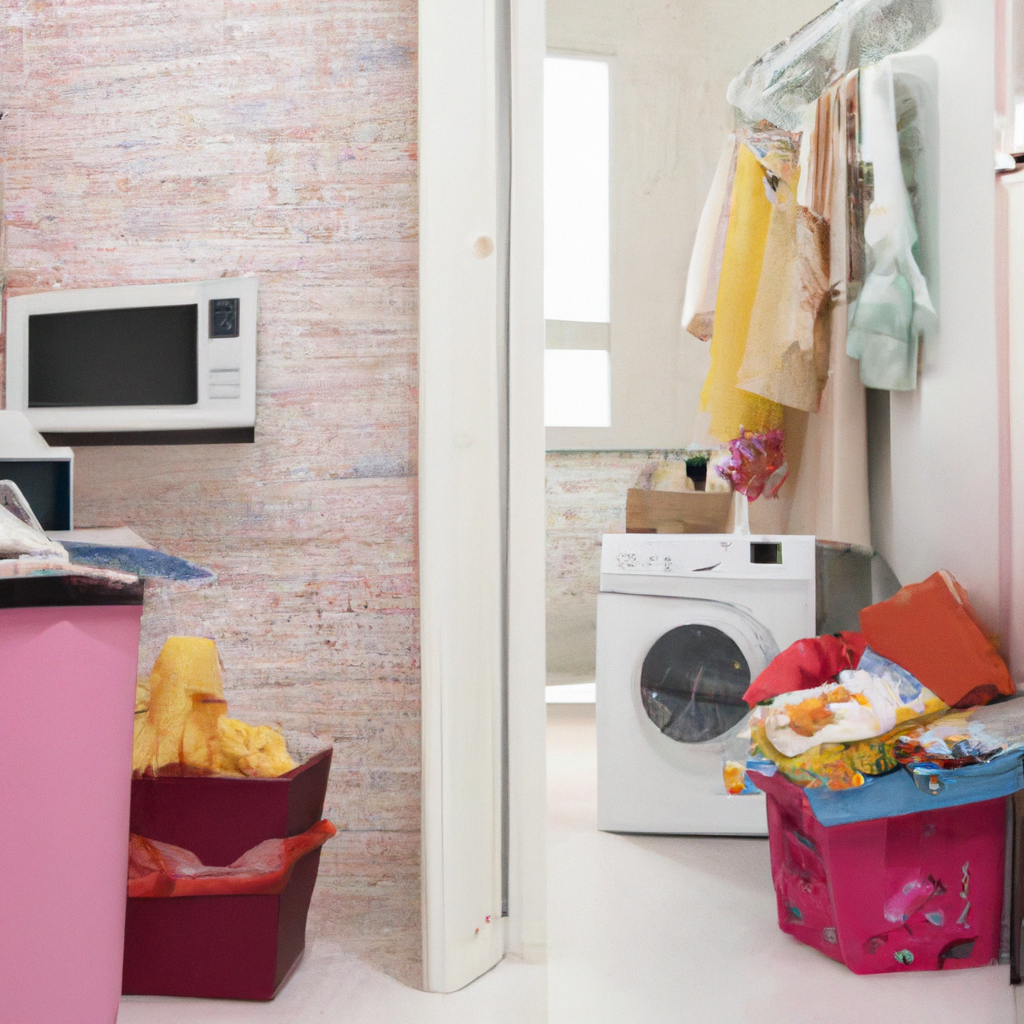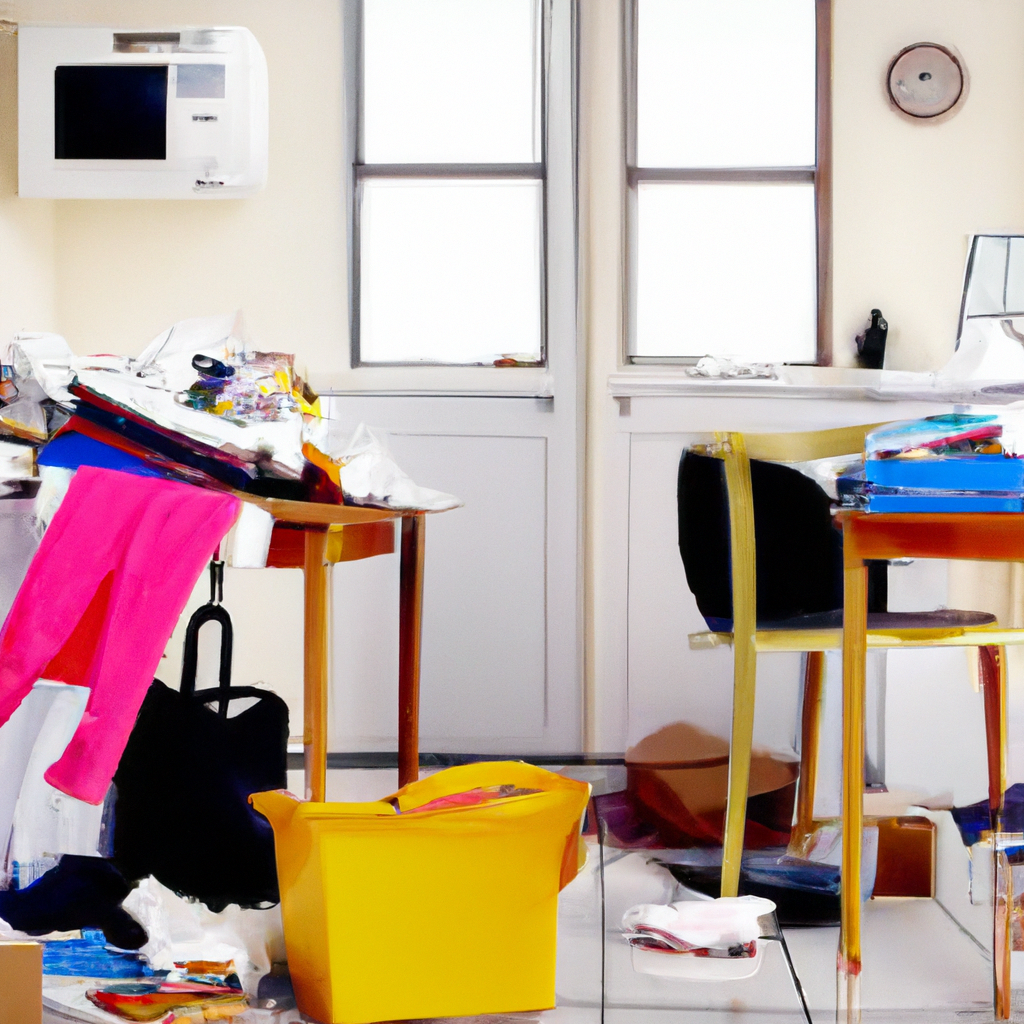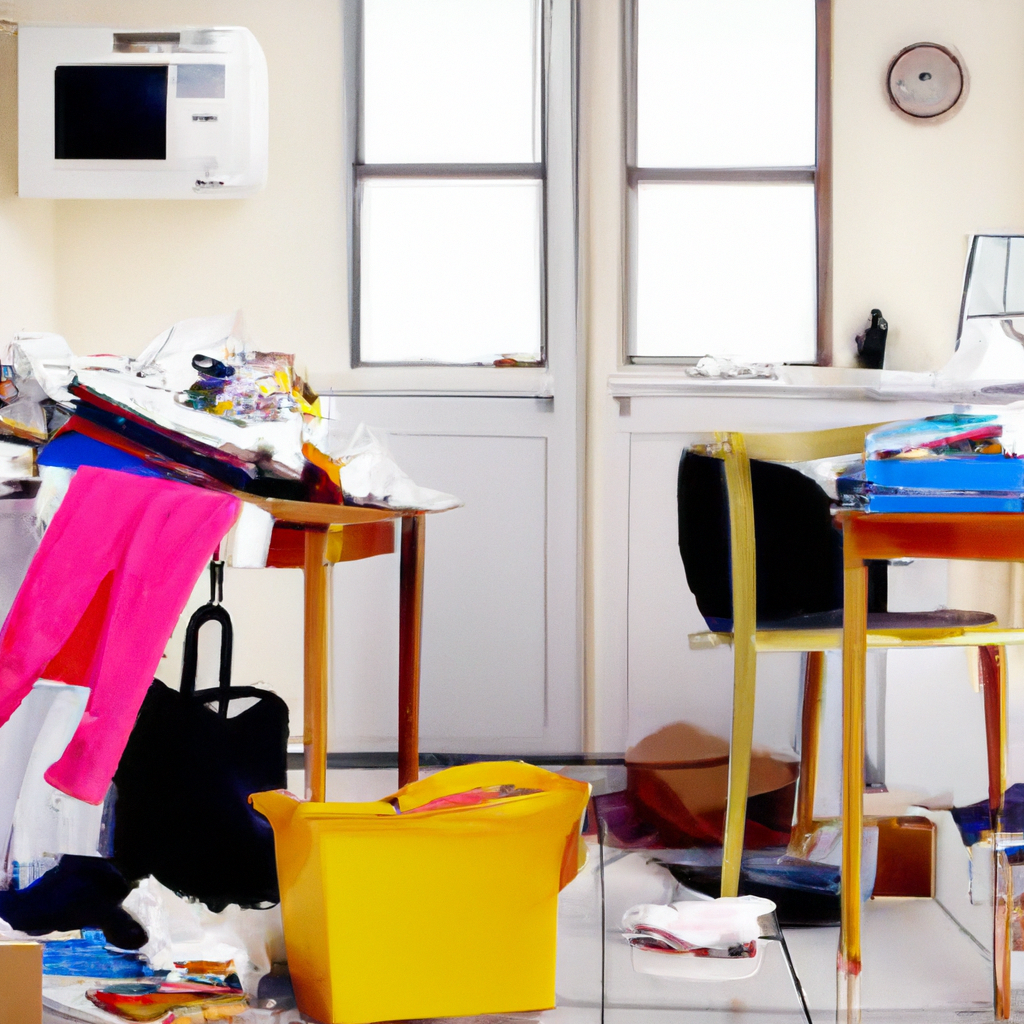You walk into your apartment after a long day at work, only to be greeted by the sight of clutter and chaos. Piles of clothes strewn across the floor, dishes stacked high in the sink, and random items scattered on every available surface. You sigh, knowing that you should have taken the time to clean up earlier, but for some reason, you just let it slide. It’s a question that has been bugging you for a while now – why do you let your apartment get messy? In this article, we will explore the various reasons behind this common struggle and offer some helpful tips to overcome it.

Lack of a Cleaning Routine
Not having a designated cleaning schedule can often lead to a messy apartment. Without a routine in place, it’s easy to let cleaning tasks slip through the cracks and accumulate over time. When you don’t have a set time or day to clean, you may find yourself constantly playing catch-up, which can be overwhelming and inefficient.
Forgetting to clean regularly is another common reason why apartments get messy. Life can get busy, and it’s easy to overlook cleaning when you have other priorities on your plate. However, neglecting regular cleaning can result in clutter and dirt building up, making the task even more daunting when you eventually tackle it.
Being too busy to clean is a legitimate concern for many people. With the demands of work, family, and social obligations, finding the time and energy to clean can be challenging. It’s important to find a balance and prioritize cleaning as a necessary part of maintaining a clean and healthy living environment.
Procrastination
Putting off cleaning tasks is a habit that many of us can relate to. It’s easy to convince ourselves that we’ll do it later or that the mess isn’t bothering us at the moment. However, this procrastination can quickly lead to a messy and unorganized apartment.
Dealing with other priorities first is another reason why cleaning gets delayed. When we have a long to-do list, cleaning often takes a backseat to more pressing matters. While it’s important to prioritize tasks, it’s also essential to recognize the importance of maintaining a clean and tidy living space.
Feeling overwhelmed by the mess can also contribute to procrastination. Sometimes, the sheer magnitude of the cleaning task can be daunting. You may not know where to start or feel like you’ll never get everything clean. This overwhelming feeling can lead to avoidance, creating a cycle of procrastination.
Lack of Motivation
Not finding cleaning enjoyable is a common barrier to maintaining a clean apartment. Cleaning can be seen as a chore or a mundane task, making it difficult to find the motivation to tackle it. However, reframing your mindset and finding ways to make cleaning more enjoyable can help overcome this lack of motivation.
Feeling demotivated by the repetitive nature of cleaning is another challenge. When the same cleaning tasks need to be done over and over again, it’s easy to lose enthusiasm. However, implementing small changes, trying new cleaning methods, or listening to music or podcasts while cleaning can help break the monotony and make the task more enjoyable.
Lacking a sense of urgency can also contribute to a lack of motivation. When there’s no immediate consequence to a messy apartment, it’s easy to postpone cleaning. However, it’s important to realize that living in a clean and organized space can positively impact your overall well-being and productivity. Creating a sense of urgency around maintaining cleanliness can help motivate you to make cleaning a priority.

Lifestyle Factors
A hectic work or social life can leave little time for cleaning. When you’re constantly on the go, finding the time and energy to clean may be challenging. However, it’s important to recognize that a clean living environment can contribute to your overall well-being and reduce stress. Prioritizing cleaning and finding ways to incorporate it into your busy schedule can help maintain a tidy apartment.
Living alone can sometimes lead to a lack of motivation to keep a tidy space. Without the accountability of roommates or family members, it’s easy to let things slide. However, living in a clean and organized environment can improve your mental well-being and make you feel more productive. It’s important to find intrinsic motivation and value having a clean living space for yourself.
Having roommates who contribute to the mess can make it difficult to maintain cleanliness. Different cleaning standards and habits can create tension and may lead to a messy living environment. Open communication and establishing shared cleaning responsibilities can help ensure everyone contributes to maintaining a clean apartment.
Mental Health Issues
Struggling with depression or low energy levels can significantly impact your motivation to clean. Mental health issues can make even basic tasks feel exhausting and overwhelming. During these periods, it’s essential to seek support and find strategies to manage your mental health while also addressing the cleanliness of your living space.
Losing interest in keeping a clean space is a common symptom of depression or low mood. When you’re not feeling your best, the importance of a tidy apartment may lose its significance. It’s important to remember that a clean environment can have a positive impact on your mental well-being. Seeking help and finding ways to break the cycle of low mood can help reignite your motivation to maintain cleanliness.
Using clutter as a coping mechanism is something many individuals with mental health issues can relate to. Clutter can provide a sense of comfort and security, even if it ultimately adds stress. Recognizing this pattern and finding healthier coping mechanisms can help create a more peaceful and organized living space.
Perfectionism
Feeling overwhelmed by the idea of organizing and cleaning perfectly can sometimes prevent people from even starting. The fear of not doing it perfectly or not meeting unrealistic standards can be paralyzing. It’s important to remember that cleaning doesn’t have to be perfect; it’s about progress, not perfection. Setting realistic expectations and taking small steps can make cleaning more manageable.
Setting unrealistic standards for cleanliness can create unnecessary pressure and stress. Striving for a spotless and immaculate apartment at all times is often unrealistic and unattainable. It’s important to find a balance between cleanliness and a livable space. Setting more reasonable standards can alleviate the pressure and make cleaning a less daunting task.
Avoiding cleaning due to the fear of not doing it perfectly can lead to a messy apartment. Perfectionism can create an all-or-nothing mindset, making it difficult to take action. Embracing imperfection and recognizing that progress is better than no progress can help overcome this fear and motivate you to start cleaning.
Lack of Storage Solutions
Not having enough storage space for belongings can contribute to a messy apartment. When items don’t have a designated place, they tend to accumulate and create clutter. Investing in storage solutions, such as shelves, bins, or organizers, can help maximize your space and make it easier to keep things tidy.
Not having proper organization systems in place can make cleaning and tidying up more challenging. Without a clear system for categorizing and storing items, things can quickly become disorganized. Implementing storage solutions and establishing organization routines can help maintain cleanliness and streamline the cleaning process.
Feeling overwhelmed by the lack of storage options can discourage you from maintaining a clean apartment. When it feels like there’s nowhere to put things, it’s easy to give up and let the mess pile up. However, being creative with storage solutions, utilizing vertical space, and decluttering regularly can help maximize the space you have and make cleaning more manageable.
Physical Limitations
Dealing with chronic pain or disabilities can make cleaning challenging. Tasks that may be simple for others can become physically exhausting or painful. It’s important to listen to your body and make accommodations that allow you to clean in a way that is safe and comfortable for you. Knowing your limitations and seeking assistance, if necessary, can help maintain a clean living environment.
Lacking strength or mobility can also hinder your ability to perform cleaning tasks. Moving heavy furniture, reaching high places, or even simply sweeping or mopping can be physically demanding. Finding alternative methods or tools that make cleaning easier, such as lightweight cleaning equipment or long-handled tools, can help overcome these limitations.
Needing assistance for heavier cleaning tasks is nothing to be ashamed of. Sometimes, certain cleaning tasks require more physical strength or endurance than you possess. Seeking help from friends, family, or professional cleaners can ensure that these tasks are taken care of and alleviate the burden on yourself.
Prioritizing Other Activities
Engaging in hobbies or interests that take up time and energy is a common reason for a messy apartment. When you have a passion or a project that consumes your focus, cleaning may not be high on your list of priorities. However, it’s important to find a balance between your interests and maintaining a clean living environment. Setting aside dedicated time for cleaning or multitasking can help manage both aspects effectively.
Focusing on work or personal projects instead of cleaning can lead to neglecting your living space. It’s easy to get caught up in the demands of your job or personal goals and let cleaning fall to the bottom of your to-do list. However, it’s essential to recognize that a clean environment can impact your productivity and mental well-being. Incorporating cleaning into your routine and finding ways to make it more efficient can help strike a balance between work/projects and a clean apartment.
Having a busy schedule with little free time can make it challenging to find the time and energy to clean. When your days are filled with commitments and responsibilities, cleaning may be the last thing on your mind. However, making small changes, such as breaking cleaning tasks into smaller, manageable chunks or outsourcing certain tasks, can help fit cleaning into your schedule and create a more balanced lifestyle.
Lack of Accountability
Not having someone to hold you accountable for keeping a clean apartment can contribute to the mess. When there’s no external expectation or pressure to maintain cleanliness, it’s easy to let things slide. However, finding ways to hold yourself accountable, such as setting personal goals or implementing rewards and consequences, can help establish a routine and maintain a tidy living space.
Not feeling the need to impress visitors or guests with a tidy space can also lead to a lack of motivation to clean. When no one else sees your apartment, it can be easy to let things become cluttered and disorganized. However, valuing cleanliness as a personal priority and recognizing the impact it has on your own well-being can help overcome this mindset and motivate you to keep a tidy space, regardless of who may or may not see it.
Not valuing cleanliness as a personal priority can make it challenging to maintain a clean living environment. Everyone has different priorities, and cleanliness may not be at the top of your list. However, understanding the benefits of a clean and organized space, such as reduced stress and increased productivity, can help shift your perspective and make cleanliness a personal priority.
In conclusion, there are various reasons why people may let their apartment get messy. Whether it’s due to a lack of a cleaning routine, procrastination, lack of motivation, lifestyle factors, mental health issues, perfectionism, lack of storage solutions, physical limitations, prioritizing other activities, or lack of accountability, it’s essential to recognize these barriers and find strategies to overcome them. Taking small steps, seeking support if needed, and finding a balance between priorities can help you maintain a clean and organized living environment that contributes to your overall well-being and peace of mind.
